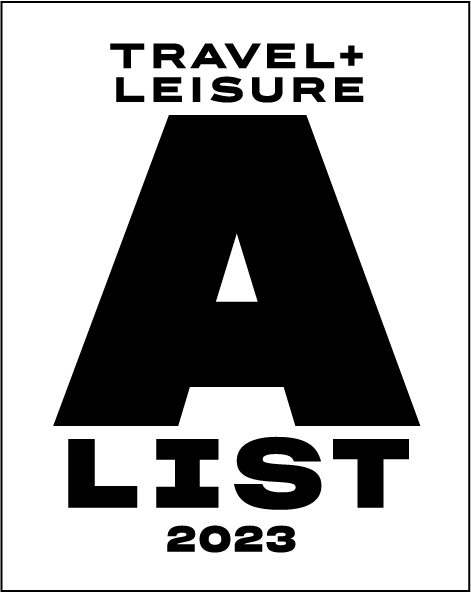Malawi is a gem of a country in central southern Africa that offers a true African experience. The population is about 13 million and the capital is Lilongwe. Lake Malawi, the third largest water body in Africa, takes up almost a third of this narrow country which covers an area of 118 480 square kilometres. Warm and welcoming, Malawi offers visitors wonderful beauty, fascinating parks and some of the friendliest people in Africa. It is no wonder it is known as the “warm heart of Africa.”
INTERESTING FACTS
Red in the Malawian flag represents the blood of the martyrs of African freedom, black represents the people of the continent of Africa, while the green represents the land and natural resources of Malawi. The rising sun represents the dawn of freedom and hope for Africa.
GOVERNMENT
Formerly known as Nyasaland, the country attained independence from the United Kingdom in 1964 and became a single-party state under the presidency of Hastings Banda, who remained president until 1994, when he was ousted from power. Joyce Banda (no relation) is the current president, raised to that position after president Bingu Mutharika died in 2012. She is the first female leader in Malawi. Malawi has a democratic, multi-party government with three arms: the Executive which is headed by the democratically elected president, the legislature headed by the Speaker and the judiciary by the Chief Justice.
ECONOMY
Landlocked Malawi ranks among the world's most densely populated and least developed countries. The economy is predominately agricultural with about 80% of the population living in rural areas. Agriculture, which has benefited from fertilizer subsidies since 2006, accounts for more than one-third of GDP and 90% of export revenues. Products include tobacco, sugarcane, cotton, tea, corn, potatoes and macadamia nuts.
CURRENCY
The Malawi unit of currency is the Malawi Kwacha (abbreviated to MK internationally; K locally) which is divided into 100 Tambala. Practically speaking, only the Kwacha is used.
LANGUAGE
Chichewa is the official language, however, English is widely spoken.
TIME
Malawi shares the same time as all southern Africa, except Namibia, which is Greenwich Mean Time – (GMT) + 2 hours.
CLIMATE
The weather in southern Africa is generally pleasant throughout the year – warm to hot days, and cool to warm nights. During our winter months, however (May to September), it can get chilly at night and in the early morning, particularly when on safari, so we would like to suggest that you pack accordingly – warm clothing including an anorak/winter jacket, a beanie, scarf and gloves are recommended. Please also refer to our packing suggestions list.
There are a couple of anomalies that can occur. For example, the rains should stop in April and return in November, however, the north occasionally experiences summer rains and Zomba and Nyika, at a heightened altitude, can experience mist, drizzle and chilly evenings throughout the year. While it is always warmer at Lake Malawi, winds can brew up at any time. The following is a generic guideline of the weather pattern in Malawi:
- January to March: Hot and wet. It is still possible to travel around particularly in the south.
- April to May: Warm days and cool evenings. Generally the skies are clear and the lake should be calm. There is a possibility of light rains.
- June to July: Warm days and cool to cold evenings. By July the lake can become windy.
- August: Warm to hot days. Cool nights and winds on the lake.
- September to October: Hot to very hot days and warm evenings. There tends to be very little wind on the lake.
- November to December: Hot days and nights. Rains are common at this time of year.
Temperatures vary from below freezing (at night on the high plateau in winter – July) to 38°C (in the Lower Shire Valley in summer – December). To generalise is difficult, however, through much of the year and in regions visited by travellers, temperatures during the day are usually in the mid-20s°C. In the short hot season, November – December, maximum temperatures may rise to the lower 30s°C. Lake Malawi’s surface temperatures vary from about 24°C to 28°C.
Rainfall varies greatly. Some years it has been exceptionally dry while others can be very wet. Parts of the Lakeshore can receive 1 270 to 1 525 millimetres a year, however, Lilongwe’s and Blantyre’s figures are less than half that. Much of the rain falls in short but heavy bursts.
Temperature (ºF) – These are the average lows and highs:
|
|
Jan
|
Feb
|
Mar
|
Apr
|
May
|
Jun
|
Jul
|
Aug
|
Sep
|
Oct
|
Nov
|
Dec
|
|
LIL
|
64/78
|
63/77
|
63/78
|
58/78
|
52/76
|
49/73
|
47/71
|
51/75
|
55/80
|
61/83
|
64/84
|
64/80
|
Average Rainfall (inches) – This varies according to the year and location:
|
|
Jan
|
Feb
|
Mar
|
Apr
|
May
|
Jun
|
Jul
|
Aug
|
Sep
|
Oct
|
Nov
|
Dec
|
|
LIL
|
8.8
|
7.8
|
5.1
|
1.8
|
0.3
|
0.1
|
0.1
|
0.0
|
0.0
|
0.4
|
2.6
|
7.0
|
LIL = Lilongwe
PUBLIC HOLIDAYS
The dates of certain public holidays referred to below may change from year to year. If a public holiday falls on a Sunday, Monday is declared a public holiday.
01 January New Year’s Day
15 January John Chilembwe Day
03 March Martyr’s Day
Varied date Good Friday
Varied date Easter Sunday
01 May Labour Day
14 June Freedom Day
06 July Republic Day
25 December Christmas Day
26 December Boxing Day
HEALTH
Please take note of the following:
- Water: Please treat all water in Central Africa as undrinkable – unless you are in camps and lodges where you are told that the water is safe to drink. Although most water is suitable for drinking (it is free from bacteria), it may have a high mineral content – generally magnesium, which acts like "Milk of Magnesia" and can therefore cause stomach upsets.
- Bilharzia Bilharzia is a disease which is common in most large bodies of water in the southern half of Africa. Lake Malawi has always had bilharzia, however, only in certain parts of the lake, as it can only exist in areas where there is minimal wave action. It is thus not likely to be present at Chintheche (where we have had the water tested often and never found bilharzia present) or at Mumbo Island where the camp is located 5 kilometres off the mainland. In the unlikely event of bilharzia being contracted, it is easily diagnosed by a simple blood test and easily and effectively treated with biltracide.
- Malaria: Malawi is a malarial area and generally it is more prevalent in the lower hotter areas, and during or within three months of the rains (November – June). Accommodation in all these areas will include mosquito netting. Please consult your medical practitioner on the corrective preventative measures to take and see the more detailed note in our general travel information.
PAYMENT
US Dollars, GBP Sterling, Euro and South African Rands are widely accepted. You are strongly advised to avoid black market currency traders. There is no limit to the amount of foreign currency brought into Malawi, however, it must be declared and accounted for on departure.
BANKS
Banks in the main towns are open weekdays from 08:00 to 13:00. Mobile banks operate along the Lakeshore and in more remote areas (check days/times locally).
SHOPPING
European-style shops are almost exclusively found in Blantyre and Lilongwe. Shops and offices do open and close earlier in the day than is the custom in Europe or North America. Markets and roadside vendors are popular with travellers and souvenirs include excellent wood carvings and straw goods. The standard of craftwork varies, however, at its best it is quite outstanding. In the markets, bargaining is expected.
VALUE ADDED TAX (VAT)
All goods and services in Malawi are priced to include value added tax (VAT) of 16.5%.
DEPARTURE TAX
For passengers flying out of Malawi, there is an International Airport Departure Tax. All commercial airlines include international departure tax in their ticket price and you need only pay an international departure tax when flying on a light aircraft/private charter. Vouchers to pay for this tax are purchased at the airport, however, please note that payment must be in US Dollars cash. There are also small Domestic Departure Taxes applicable from the main airports such as Lilongwe and Blantyre, when flying internally and again these are paid direct in US Dollars cash. Currently, and subject to change, these taxes are:
- International Departure Tax: US$ 35.00.00 per person
- Domestic Departure Tax: US$ 10.00 per person
DRESS CODE
Although no formal dress is required, the rural areas of Malawi are still conservative in outlook and ladies are advised to dress modestly. Outside of lodges and/or resorts, short skirts/shorts (i.e. above the knee) and swimsuits would be inappropriate. If you wish to visit the local villages, we recommend that you travel with a simple wraparound skirt (locally called a “chitenje” and available at any market in Malawi at a very reasonable price) to put on over your other attire.
ELECTRICAL
Some camps supply adaptors (3-prong round, 3-prong square, 2-prong round, 2-prong flat), but it is advisable that you carry your own.
MOBILE PHONES
At present the mobile network, which is fast expanding, does not cover all of Malawi. If you have international roaming then you should be able to receive calls in most major centres. In the more remote areas where some of our camps are located, reception is erratic or not available at all. Ring tones should be kept at a minimum so as not to disturb other guests and must be turned off during the game activities so not to disturb the wildlife, guides and other guests.


